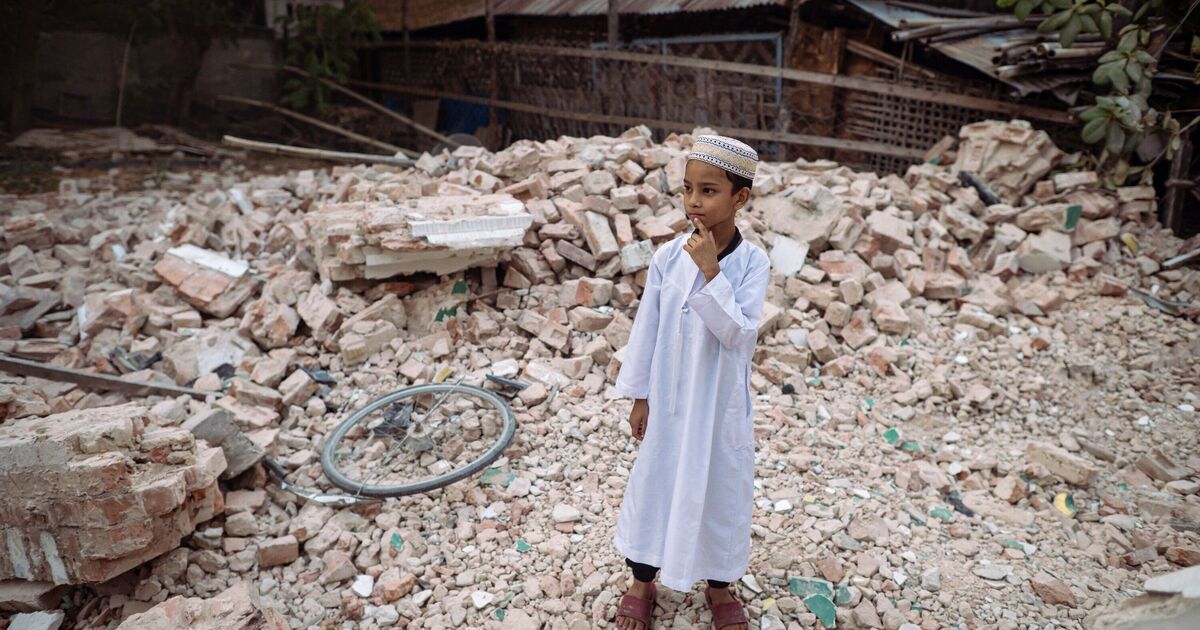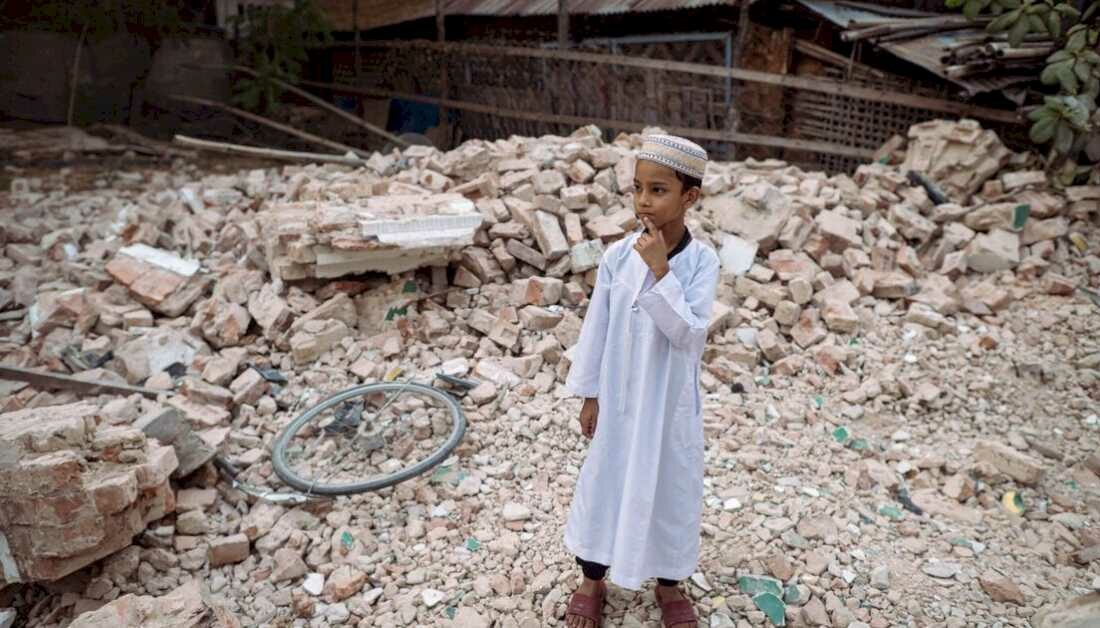
Myanmar was left devastated after a 7.7-magnitude earthquake, one of the deadliest to ever strike the country, hit it on Friday. The huge tremor hit close to the city of Mandalay at about 12.50pm local time on March 28. The natural disaster caused extensive damage in Myanmar, but also affected neighbouring Thailand and southwest China.
Just 12 minutes after the tremor, the country was struck by a first, powerful, 6.4-magnitude aftershock. Smaller quakes have been felt since, including a 5.1-magnitude tremor in northwest Mandalay on Sunday. The earthquake buckled roads, damaged bridges and flattened many structures, including beloved religious buildings like the Mahamuni Pagoda Buddhist temple. A week of national mourning has been declared in Myanmar, which suffered thousands of casualties. Officials said 2,056 people have died, while around 3,900 others were left injured and 270 remain missing.
The number of casualties, the World Health Organisation (WHO) said, is expected to increase, as the “scale of deaths and injuries is not yet fully understood”.
As search and rescue efforts continue, people in Mandalay claimed the smell of dead bodies is permeating the streets.
The earthquake hit while Myanmar, formerly Burma, is in the grips of a civil war, which has made rescue efforts and the spread of information even more difficult.
The army seized power in February 2021 and now large parts of the country are entangled in a deadly conflict. The state controls almost all local radio, television, print and online media. Internet use is also restricted.
Some international aid – mainly from China and India – has begun to arrive after the military authorities issued a rare appeal for help.
The UN has urgently appealed for £6.2 million, as aid groups warn of a worsening humanitarian crisis, with hospitals damaged and overwhelmed.
The WHO also said: “The earthquake’s devastation has overwhelmed healthcare facilities in the affected areas, which are struggling to manage the influx of injured individuals. There is an urgent need for trauma and surgical care, blood transfusion supplies, anaesthetics, essential medicines, and mental health support.”
Meanwhile, in Thailand’s capital, Bangkok, some 621 miles away from the epicentre, 19 people are known to have died after the collapse of an under-construction high-rise building. Rescue efforts continue for the around 75 people still trapped under the rubble. No survivors have yet been found.
Videos on social media showed rooftop pools spilling over the sides of swaying buildings.
A staff member from Oxfam in Mandalay, said: “The ground shook violently beneath my feet. Buildings around me began to collapse, and I could hear the cries of people running. It’s impossible to describe the horror and helplessness felt as I watched families desperately trying to escape the destruction.
“The scale of this tragedy is beyond what we could have ever imagined.”

